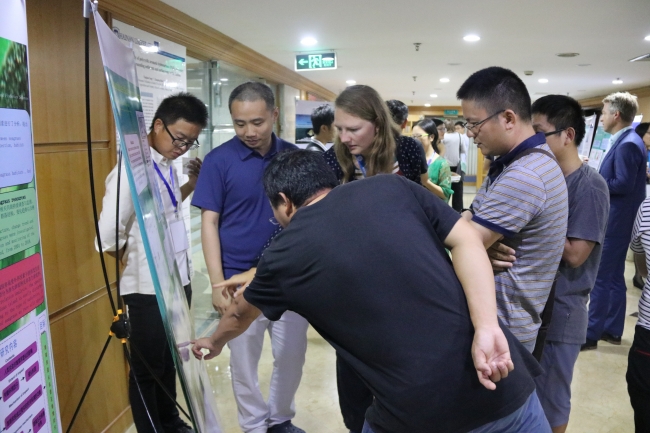04.09.2018 | As part of the TICAS* project, the Leibniz Centre for Tropical Marine Research (ZMT) together with the Hainan Ocean and Fishery Research Institute invited more than 60 stakeholders to a workshop which took place as a follow-up to the German-Chinese ECOLOC meeting.
Representatives from politics, environmental protection organizations, and representatives from industry, especially from aquaculture facilities, met with German and Chinese scientists to be informed about current research results and to jointly develop and discuss ideas and approaches for sustainable use and management of coastal ecosystems in Hainan. Researchers and stakeholders from the different areas presented the environmental problems they face in their work related to Hainan's coastal ecosystems and discussed proposals on how to improve cooperation between scientists and non-scientific actors.
Possible future activities include making recommendations to policy makers in the form of policy briefs, supporting the establishment of nature reserves, and promoting the continuous exchange of knowledge with European partners on topics such as sustainable management of coastal ecosystems, including fisheries and aquaculture. For the aquaculture industry, the establishment of an community institute to monitor the water quality of aquaculture ponds would be a step to consider. Interest has also been expressed in training courses to promote and improve dialogue between fishermen, consultants and government officials.
About TICAS (*Tackling environmental change Issues of China's coastal aquatic systems: networking, capacity building and knowledge exchange):
The TICAS project, which is docked to the ECOLOC project, promotes networking and knowledge exchange between science and society in order to foster the production and dissemination of knowledge to solve environmental problems of China's coastal ecosystems and their sustainable use.





